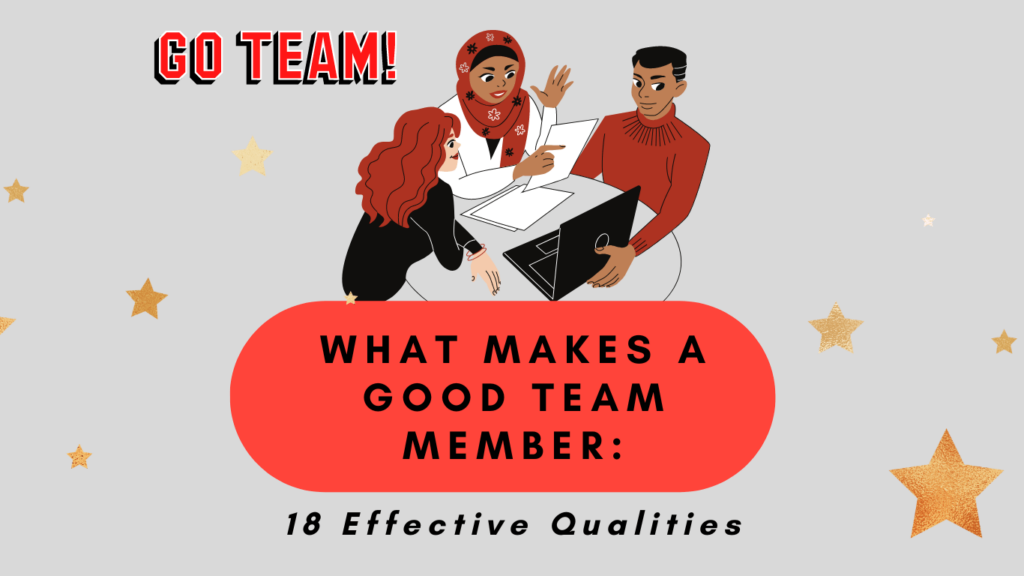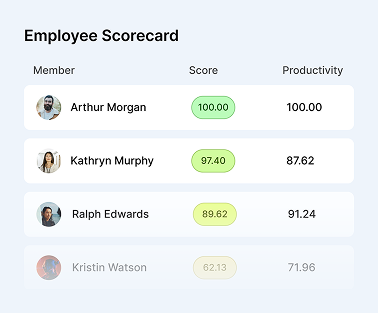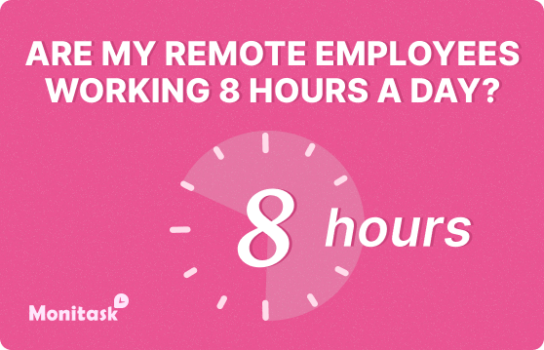What Makes a Good Team Member: 21 Effective Qualities

Team members play a critical role in the success of any project or organization. People tend to believe teams must work really hard to be considered good, but when we want to build an effective team, there are other important team player skills that need to be embraced to ensure a team’s success, collaboration, high performance, and long-term sustainability.
From strong communication skills to problem solving skills to a healthy, positive attitude, there is a wide array of qualities team players should strive for to build a successful team. In this article, we’ll explore the qualities and skills that every manager should look for in potential team members.

What Does It Mean To Be a Great Team Player in the Workplace
Over time, the profile of a great team player has changed to fit workplace trends. According to various authors, in “action teams”, each team member possesses specific information or expertise to contribute to the team task or a certain project.
Therefore, a strong team member is one who can support the team no matter what the task may be. All teams have multiple purposes, whether is to reach sales goals, develop a new product, or complete a project.
Yet, we can identify a great team player if:
✅ Accomplishes the work of the team
✅ Strengthens the capabilities of the team itself
✅ Fosters the well-being of individual teammates.
Being an effective team player means being collaborative, supportive, and reliable. Here are some questions you can ask yourself to reflect on your own team player qualities:
If as a manager or an employee, you are having a hard time answering the questions above, you might need to work on your team player qualities and job descriptions and responsibilities. Below, we’ll explore the 18 best qualities that to be a better team player, and to help managers in the hiring process.
List of Team Player Characteristics
Effective teams thrive when every member brings the right mix of skills and attitudes—qualities like communication, accountability, and flexibility that drive collaboration and trust. These traits lay the groundwork for shared success, helping teams navigate challenges, spark innovation, and reach their goals together.
Below are the Team Player Characteristics.
Open-Minded and Receptive
Being open-minded and receptive to new ideas, feedback, and changes is extremely valuable in any team setting. Great teammates are those who are humble when providing input, and they don’t take criticism personally. They understand that different people bring different skills, experiences, and knowledge to the table; therefore they are open to ideas from their peers and act as a sounding board for each other. Open-minded teammates can adapt to new ideas and make compromises when needed.
Practices Effective Communication
According to a ClearCompany survey, 86% of employees and executives attribute workplace failures to a lack of collaboration and poor communication. Strong communication skills are necessary for any team to succeed. Great teammates are those who communicate effectively, whether it’s in-person or through written means.
They express their ideas confidently and clearly, while also paying attention to what other team members have to say. Effective communication means using language that everyone can understand, being clear when expressing ideas and opinions, and being polite even when disagreeing. It also means having the courage to ask questions if something isn’t clear.

Promotes Cooperation
At its core, cooperation is the subtle skill of knowing how to work collaboratively towards common ground, and it’s a vital component of any team’s success. When team members informed, they cooperate, share ideas, communicate effectively, and trust one another to do their part along the project.
A good team player recognizes the importance of cooperation and encourages it by being a good listener, sharing information, and offering support and feedback. They understand that everyone has something valuable to contribute and strive to create an atmosphere of inclusivity, respect, and teamwork.
Open to Help Teammates
An effective team player isn’t just focused on individual tasks, but they are also willing to help out their teammates when needed. They understand the importance of teamwork and recognize that it takes everyone’s effort to reach the group’s goal.
These types of team players offer support and guidance whenever possible, even if it’s not directly related to their own responsibilities. They go out of their way to lend a helping hand and offer assistance, even if the task is outside of their job description.
Takes the Initiative
A good team player is proactive by taking initiative and anticipating the needs of the team. They don’t just wait for instructions but actively seek out ways to contribute to the group’s success. Taking initiative also means thinking outside of the box to come up with creative solutions and not waiting for someone else to make the first move.
They are willing to take on additional responsibilities and are always looking for ways to improve the team’s performance. A proactive team player is a valuable asset to any group because they help to keep the team moving forward and prevent problems from arising.
Conscious Optimistic
Team players who are conscious of their own and others’ level of optimism can help to maintain a positive attitude. They remain upbeat in challenging situations and strive to see the silver lining in each situation. Having an optimistic teammate is important because it helps to keep morale high, which can help to motivate the team and keep them focused on achieving their goals. An optimistic team player is also more likely to be resilient in the face of adversity, which can be a valuable trait in any positive work environment.
Motivates and Inspires Team Members
A good team player is more than just a passive member of the team. These types of teammates encourage and motivate their peers, helping to make sure everyone stays focused on the task at hand. They are willing to take the time to listen to their team members’ ideas and provide constructive feedback to help them improve.
They inspire others by being passionate about what they do, setting a positive example, and emphasizing the importance of teamwork. In addition to motivating their teammates, these players also take the time to recognize and appreciate their efforts. This helps to create a sense of unity and collaboration that is essential for any successful team environment.

Cultivates Leadership Skills
A good team player knows how to lead when necessary. As everyone has different leadership styles, a great team player is able to recognize and adapt their style to best suit the group. They know when to take the leadership role, how to delegate tasks effectively, and are willing to share credit with their teammates when due.
They are able to take charge and make decisions that are in the best interest of the group. Leadership isn’t always about being the loudest or most outspoken. A great team player is aware that leading can also mean setting a good example for their peers and inspiring them to do their best recognizing potential in each of their teammates.
Check out our blog post on “How to Develop Leadership Skills (The Right Way)” here.
Knows When to Take a Step Back
Great group players also know when to take a step back and let others take the lead. They understand that every member of the group should have an opportunity to shine, and they don’t always have to be in control or be the center of attention. These players are aware of their own strengths and weaknesses and will recognize when someone else has a better grasp on the task.
They are also comfortable with admitting when they don’t know something and asking for help if needed. They rejoice in learning from their teammates, celebrate the successes of their teammates, and don’t take credit for their work. Knowing when to take a step back can be just as important as taking initiative, and effective team players understand this balance in their career.
Maximize productivity of your business
Track employee productivity and simplify work with them
Has a Critical Eye
An ideal team member also has a critical eye, meaning they know how to identify and address problems quickly and efficiently. They understand the importance of being able to think critically and can easily analyze various situations. They are able to evaluate the pros and cons of different options and choose the best course of action for the entire team.
These players are able to spot issues before they become major problems, which helps prevent delays or mistakes that could hinder the team’s goals. They have the ability to evaluate the current team dynamics and suggest solutions that could improve the overall performance of the group. Critical thinking is a valuable skill that every team player should possess, as it helps keep teams on track toward achieving their goals.

Knows When to Entrust Tasks to Others
Good team players are also comfortable leaning on their teammates for help and support. They understand that delegating tasks to others is essential for success, and they know when to trust someone else with a task or project. These types of players encourage their co workers to take ownership of what they do, allowing them to put their own unique skills and abilities into practice. Entrusting difficult tasks to others also helps to create a team dynamic in which everyone feels valued and respected, as each individual is given the opportunity to show their strengths.
Active Listener
Active listening is an essential quality for any strong team player. To be an active listener means to fully engage with what the speaker is saying by giving them your full attention, acknowledging their message, and responding appropriately. A great team player will pay close attention to what their co workers are saying and take the time to really understand different points of view.
They are patient when engaging in conversations, allowing each person the chance to speak without interruption or judgment. They ask pertinent questions and provide feedback if needed, but always with respect for others’ opinions. Team players with active listening skills can more effectively collaborate with their colleagues, build strong working relationships, and achieve better results.
Curiosity-Driven
A strong team player is also curious and eager to learn. They are open to new ideas and approaches, eager to explore different options, and are never afraid to ask questions. Curiosity helps group members stay engaged, as they are constantly exploring and discovering new ways of doing things or executing a project.
By being curious, teammates can better understand their colleagues’ perspectives and challenge themselves to find innovative solutions. Curiosity can also help teams become more creative, as they are unafraid of trying new things and pushing the boundaries. A curious team is likely to make breakthroughs that would otherwise have been missed.
Problem Solving Skills
It’s not like we are expecting your workplace to be a battleground, but indeed, challenges arise and sometimes, unexpectedly! An effective team player will be able to identify and address any problems that may arise. They are skilled in finding solutions, looking at the big picture, and making decisions quickly and objectively.
They also bring a positive force to solving problems, showing resilience in the face of difficulties and an eagerness to learn from mistakes. Great teammates understand how to negotiate differences between team members, helping to build understanding and create a space where everyone can thrive.

Absence of Envy and Jealousy
Envy and jealousy have no place in the workplace, but unfortunately, these feelings can be unavoidable. An ideal team player is able to recognize and manage emotions like envy or jealousy and not let them disrupt the team dynamic. They understand that everyone has something to contribute and celebrate their colleagues’ accomplishments without feeling resentful or bitter.
These types of players also don’t take credit for other people’s work. They are willing to give credit where it is due and don’t let personal feelings get in the way of recognizing a colleague’s successes. By creating an environment free from envy and jealousy, teams can focus on working effectively together towards common goals without distraction or negative energy.
Generosity Shines Through
A great team player is generous with their time, energy, and resources. They understand that the success of the team depends on everyone doing their part and they are willing to go above and beyond when needed. They enjoy helping their co workers, even if it means sacrificing some of their own time or taking on additional tasks.
These types of players also understand the importance of giving credit where it is due and recognize when someone has gone above and beyond. When a team member shines, a good teammate will be sure to show their appreciation in some way. Generosity helps to create a team environment that celebrates success and encourages everyone on the team to do their best work.
Self-Awareness
“Self-awareness means recognizing the strengths and weaknesses of oneself and focusing on them”. An outstanding team player is self-aware and knows how to best use their skills and team player qualities. They take responsibility for their actions, understand their own limitations, and strive to improve. They understand how their behavior affects others on the team and are conscious of the impact they have on the team dynamic.
These team members also recognize the importance of adapting to different situations and work effectively as part of a team. They know when to take the lead and when it’s better to step back and let someone else shine. Teams with a high level of consciousness make better judgments, interact better with one another, and successfully manage tensions and conflicts.
Open to Feedback
Effective team players work to offer constructive feedback and use it to become better team player. They understand that criticism is a necessary part of growth and they don’t take it personally. Instead, they use criticism as an opportunity to learn and improve their skills and abilities to move forward in their career.
Great team players are also willing to give feedback to their co workers when asked. They provide honest and constructive feedback in a respectful way. Great team players are not afraid to speak up when they feel something needs to be discussed, understanding that communicating effectively is one of the key points to conflict resolution and achieving success.
Dependable and Responsible
A dependable team member can always be relied upon to complete their assigned tasks and responsibilities on time and to a high-quality standard.
Even when facing distractions or challenges, a dependable teammate remains focused on delivering excellent results.
These team members take full ownership of their contributions. If they make mistakes, they take responsibility rather than making excuses or blaming others.
Their colleagues know they can count on them to meet all deadlines and produce work that the team can be proud of.
When everyone demonstrates commitment and accountability, the team can move forward seamlessly in achieving team goals.
Conflict Resolution Skills
Valuable team players have strong conflict-resolution skills. They can quickly identify issues as they come up and help resolve conflicts before they have a chance to escalate into major problems.
These members promote open and respectful communication between team members. They listen actively and seek to understand all perspectives in a disagreement.
They know how to give constructive feedback diplomatically and aim for fair compromises that satisfy everyone’s key needs.
Team players with great conflict-resolution abilities do not shy away from difficult conversations. They are willing to surface problems head-on while remaining focused on finding solutions.

What Are Examples of Collaborative Teamwork Skills?
Collaborative teamwork skills are exercised in a variety of real-world scenarios. From the sales industry to science fields and even the construction industry, having a good set of collaborative skills is essential to be successful. Some examples of these types of skills include:
- The NASA Mars Exploration Team exemplifies the power of collaborative teamwork skills and problem-solving. Their mission: to design and execute exploratory missions to the red planet. This requires seamless collaboration across various departments, including engineering, science, and mission operations. Together, they tackle intricate challenges related to spacecraft design, landing systems, and scientific instruments, pushing the boundaries of knowledge and exploration.
- Tesla’s Product Development Team exemplifies dynamism in action. This talented group is responsible for designing and developing the company’s electric vehicles, solar products, and energy storage systems. Comprised of engineers, designers, and various experts, they collaborate seamlessly across departments to create innovative and sustainable solutions. Their collective success stems from their ability to work collaboratively towards a shared goal.
- Google’s Data Science Team is a great example of collaborative data-driven decision-making. This team researches, experiments, and leverages the power of machine learning to create smarter products and services for users. They combine their best team players qualities, with the collective expertise in mathematics, statistics, and computer science to analyze large datasets and turn them into actionable insights.
Conclusion: Mastering Team Dynamics for Success
As researchers Katzenbach and Smith stated in the Harvard Business: “Groups don’t become teams because that is what someone calls them.”
Building an effective team is essential for any business. The qualities of a great team player are essential to creating an environment that is conducive to build trust, collaboration, and success.
Making sure that everyone has the skills to be a good team member will help ensure that teams can work efficiently towards their goals. A manager plays a key role in building team dynamics and encouraging these team player qualities in each of their teammates.
-The Monitask Team



